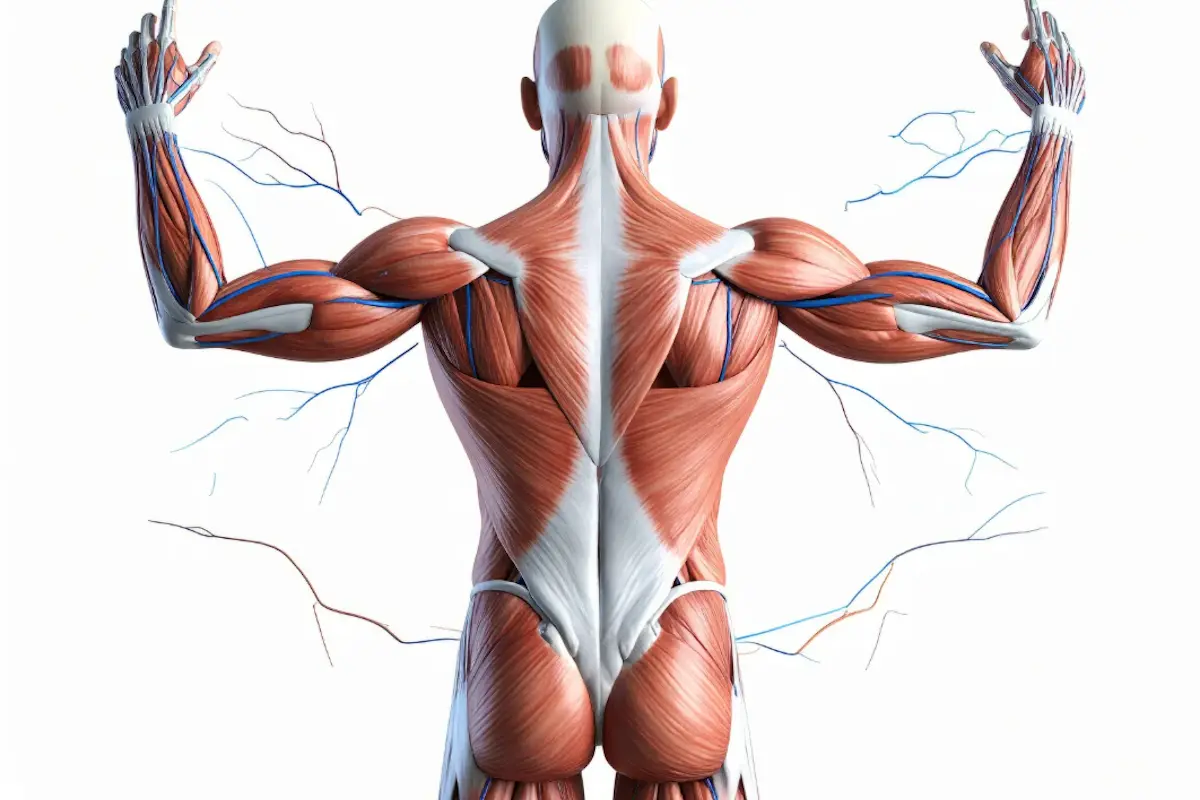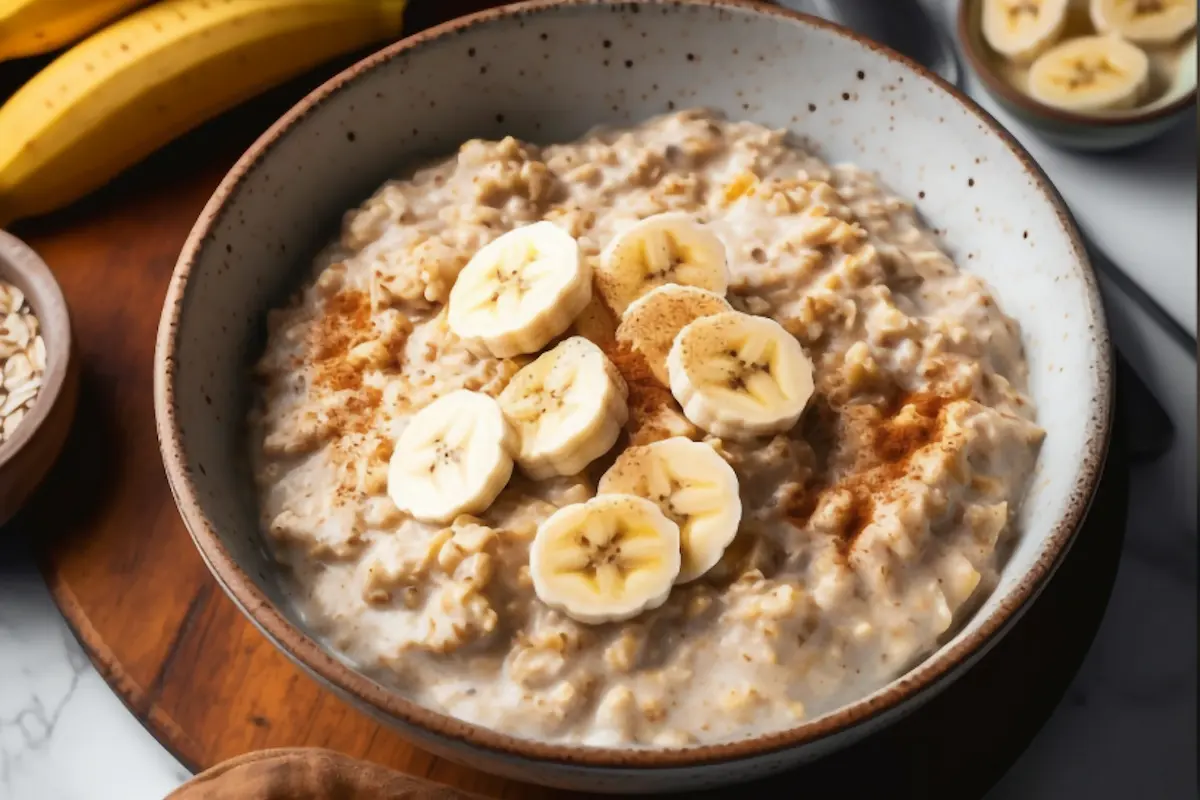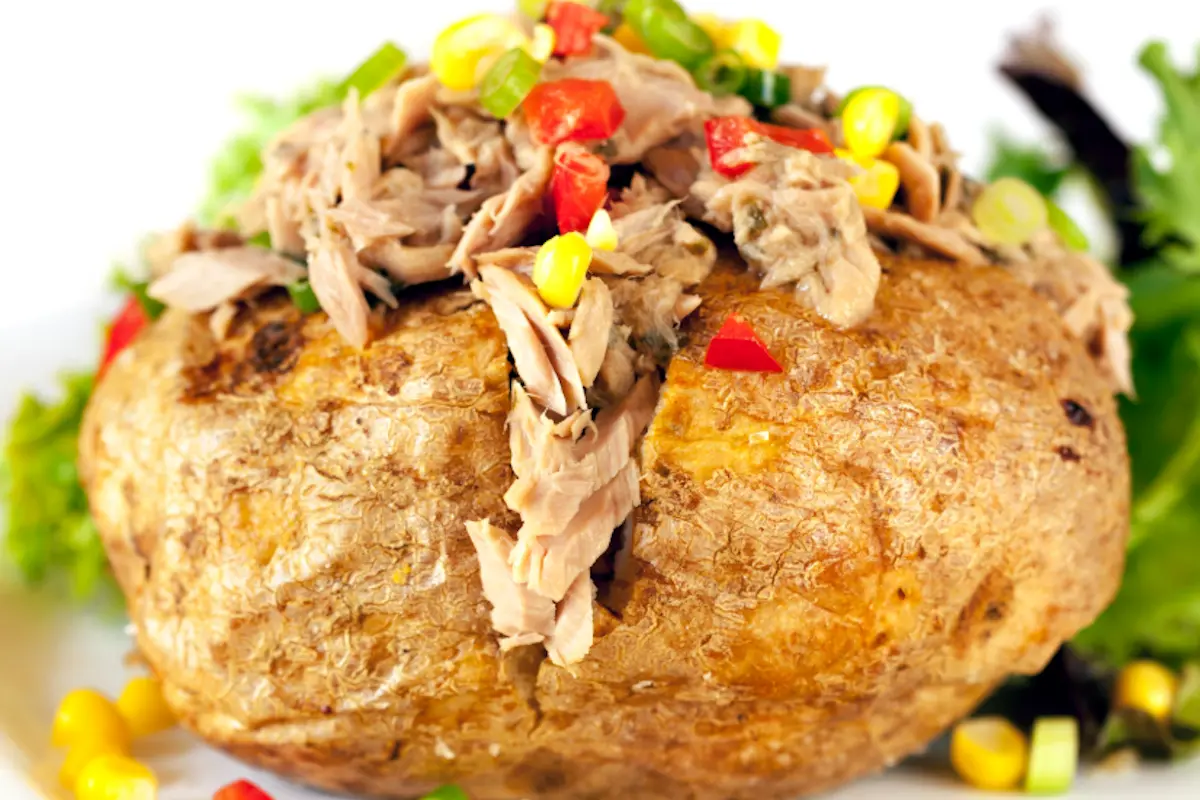Carb Timing for Powerlifters: A Guide

What's In This Article
- Key Takeaways
- The Importance of Carb Timing for Powerlifters
- Pre Powerlifting Workout Carbohydrate Consumption
- Powerlifting Intra-Workout Carbohydrate Intake
- Post-Workout Carbohydrate Recovery for Powerlifting
- Carb Timing for Powerlifters Summary
- Frequently Asked Questions
- References
- Resources
Key Takeaways
- Carbohydrate timing around workouts is essential for powerlifters. Refilling depleted glycogen stores impacts energy levels during training and the effectiveness of recovery, especially the amount of carbs consumed.
- Consuming carbohydrates pre-workout fuels exercise capacity, while intake during workouts maintains energy, aids recovery, and can reduce mental fatigue. Post-workout carbs initiate immediate glycogen synthesis and muscle repair, especially when combined with protein.
- Implementing carb cycling can optimise a powerlifter’s performance. It aligns high-carb intake days with high training demand and creates a caloric deficit on low-carb days for fat loss, with adjustments based on individual responses and goals.
The Importance of Carb Timing for Powerlifters
Every detail counts regarding lifting heavy, especially your nutrition and macros. What you eat and when you consume it can significantly impact your performance.
Carbohydrate timing is a piece of the powerlifting puzzle:
- It ensures you have the necessary energy to train hard and recover even harder. Carbohydrates are your body’s main energy source, filling your muscles with the glycogen needed for the gruelling physical activity.
- For powerlifters, whose training sessions can rapidly deplete glycogen stores, the precise timing of carbohydrate intake is fundamental. It’s not enough to load up on carbs randomly; timing them strategically around your workouts can mean the difference between hitting a new personal record or hitting a wall.
- Monitor your energy levels and performance to fine-tune your carb intake. Feeling sluggish during lifts or struggling to recover could indicate that your carbohydrate timing needs a tune-up.
Jordan Feigenbaum, MD (Barbell Medicine, Powerlifting Coach) notes that for higher-volume sessions or multiple daily training bouts, strategically distributing carbohydrates, such as 20% of daily carbs before training, 20–30% in post-workout meals, and additional carb-rich meals between sessions, can help maximise performance and recovery.
Energy Supply During Training Sessions
Every training session requires your body to have a quick and reliable energy source for performance.
- During high-intensity exercise like powerlifting, maintaining an energy supply is vital.
- Consuming carbohydrates helps maintain blood glucose levels, which fuels muscular work and supports the nervous system, which is critical for strength performance.
- During training, small carbohydrate snacks or drinks can help maintain liver and muscle glycogen levels and prevent hypoglycemia, ensuring you can sustain effort throughout your session.
The timing of consuming these energy-boosting carbohydrates is of utmost importance. Here’s how to optimise your carb intake during your training session:
- Begin your training session with sufficient carb intake to support your exercise capacity.
- As the intensity of your workout ramps up, continue to consume carbs to provide a steady stream of energy.
- This will allow you to focus on lifting heavy and making the most out of every rep.
- It’s not just about loading up before you exercise; it’s about sustaining that energy as you power through each set.

Muscle Glycogen Replenishment
Once you’ve pushed your muscles to their limits, it’s time for rebuilding and refuelling. Timely post-exercise carbohydrate ingestion is the cornerstone of recovery, essential for the rapid and maximal restoration of muscle glycogen.
- Studies show that consuming 0.6 to 1.0 g/kg of body mass of carbohydrates within the first 30 minutes post-exercise kickstarts glycogen synthesis (Kerksick et al., 2017).
- Aim for 1.0-1.5 g/kg within the first half-hour for the ultimate glycogen reload, repeated every two hours for up to six hours post-training (Ivy, 2004).
- This strategy restores what you’ve depleted and prepares you for the next session by increasing insulin sensitivity and promoting muscle glycogen replenishment.
- Carbohydrate supplementation during resistance exercise attenuates muscle glycogen loss, meaning it helps preserve glycogen stores compared to not consuming carbs (Henselmans et al., 2022).
Combining protein with your post-exercise carbs increases glycogen storage efficiency, requiring less carbohydrate overall to maximise storage.
However, the timing becomes less critical if your daily carb intake meets energy demands and you’re not in a rush for rapid recovery. It is important to note that muscle glycogen is the storage form of carbs and plays a crucial role in athletic performance and recovery.
Recovery and Growth
The period after intense training presents a window of opportunity. During this time, carbohydrate intake, paired with a lean source of protein such as tofu, supports muscle repair and fuels the recovery process that leads to improvements in strength, power, and hypertrophy.
- Muscle glycogen depletion can impede muscle protein synthesis and the maintenance of muscle mass (Howarth et al., 2010).
- Additionally, proper protein intake is crucial for recovery and growth. Proteins break down during workouts and need to be replenished to stimulate the production of new proteins in the body.
Incorporating high-carb days into your routine has several benefits:
- Aids glycogen replenishment
- Boosts training intensity
- Increases insulin levels to help preserve and grow muscle tissue (Fujita et al., 2010).
- Enhances recovery
- Improves mood states after high-volume or intense exercise
Carbohydrate manipulation is essential for maximising these benefits.

Pre Powerlifting Workout Carbohydrate Consumption
Elevating blood glucose levels through strategic carb intake supports hard training and provides the stamina needed to tackle heavy lifts.
- Complex carbohydrates are the stars of the pre-workout meal. They serve as the primary energy source to keep you powered throughout your session and prevent spikes and crashes that could derail your performance.
- Eat your meal or snack 1-3 hours before training to give your body time to digest and convert those carbs into usable energy. This timing allows you to lift confidently, knowing your body is ready to perform at its best.
Greg Nuckols (Strength Coach and researcher) points out that for higher-volume sessions (over 10 working sets per muscle group or sessions longer than 45 minutes), consuming carbs 1–4 hours before training can improve performance. He also notes that carb timing may be more beneficial in a calorie deficit or when training fasted.
Ideal Carbohydrate Sources
Complex carbs provide the slow-release energy powerlifters need for sustained effort. Examples include:
- Brown rice
- Sweet potatoes
- Whole-grain pasta
However, the timing of consumption is equally important.
- For long-lasting energy, consider eating rolled oats, buckwheat, or whole wheat bread two to three hours before training.
- Closer to your workout, opt for easily digestible, starchy carbs, such as a banana with almond butter for a quick energy hit.
Supplemental options like energy gels can also provide a blend of carbohydrates, electrolytes, and B vitamins to raise blood sugar levels before exercising.
While whole foods are generally preferable for their nutrient density, these convenient alternatives can be a lifeline if you’re short on time or need an extra boost.
Optimal Meal Timing
The timing of your pre-workout meal can be as personalised as your lifting technique.
- Generally, you should aim to consume this meal 1-3 hours before exercise to ensure a steady energy supply.
- If you’re closer to your training time, easily digestible carbs like white rice or bananas can provide the immediate energy intake without weighing you down.
- High-carb meals the night before on competition day lay the foundation for peak performance.
- Small to high-carb meals can then be interspersed between sessions on the day to sustain energy levels.
Powerlifters should experiment with different meal compositions and timing to find the formula that best supports their individual performance. Nuckols points out that if you train fasted or in a calorie deficit, strategic carb intake before training becomes more important to avoid fatigue and maximise output.

Powerlifting Intra-Workout Carbohydrate Intake
Intra-workout carbohydrate intake is about keeping your body running smoothly, supporting sustained energy levels, and aiding recovery.
- The right carbs can prevent performance decline and help you push through the most challenging lifts in training sessions that exceed 90 minutes.
- Fast-digesting carbs like dextrose are the go-to during workouts as they supply energy rapidly and help prevent performance drops.
- The advised carbohydrate concentration for intra-workout drinks or snacks is 6-8% to maximise absorption and minimise gastrointestinal issues (Jeukendrup, 2007).
- Depending on the workout’s length and intensity, you might need 15-75 grams of carbohydrates to stabilise your energy levels.
Furthermore, consuming carbs during a workout can also reduce mental fatigue and maintain focus, which is critical for executing heavy compound movements safely.
Carbs ingested during training are more likely to be used efficiently for energy and recovery and less likely to be stored as fat. However, not all powerlifters will choose to consume intra-workout carbs, especially those on cutting or low-carb diets.
Carbohydrate Sources During Training
The type of carbohydrate you choose for a mid-workout pick-me-up can make a significant difference.
- Fast-digesting carbohydrates, such as candies or dextrose powder, can provide immediate energy and prevent fatigue for powerlifters and cyclists alike.
- Products like sports hydration drink mixes are formulated specifically to replenish glycogen stores and delay fatigue during training sessions. These products blend carbohydrates with electrolytes, offering a dual benefit of energy and hydration that can keep you at your best.
Balancing Carbs with Hydration During Training
Balancing carbohydrate intake with proper hydration is key to maintaining performance and supporting recovery during workouts.
- An intra-workout hydration mixture should contain around 15 grams of carbohydrates per 8 ounces of fluid to ensure proper digestion and prevent gastrointestinal distress.
- Some studies have shown that carb mouth rinsing, even with a placebo solution, can enhance performance and improve workout experience (Brietzke et al., 2024).
- Due to their mix of electrolytes and carbohydrates, products like electrolyte powders can be particularly beneficial for individuals who experience heavy sweating during their workouts. These products help prevent dehydration and maintain energy levels.

Post-Workout Carbohydrate Recovery for Powerlifting
Post-workout carbohydrate recovery is critical for replenishing the muscle glycogen stores depleted during rigorous exercise. This process is not just about refuelling; it’s also about maximising the anabolic effects of your training.
- While glycogen replenishment occurs within 24 hours regardless of carbohydrate timing, the type of carbs consumed, such as high-glycemic index carbs, can affect the rate of glycogen synthesis and potentially benefit immediate recovery.
- This is why the post-workout phase is often considered a golden window for nutrition – when your muscles are primed to absorb nutrients and kickstart glycogen resynthesis.
Ideal Carbohydrate Sources for Muscle Recovery
A balanced meal with carbohydrates and protein is fundamental for muscle repair and glycogen replenishment, leading to better recovery and growth. Ideal sources include:
- potatoes
- rice cakes
- whole grain cereals
- ripe bananas
The co-ingestion of protein with carbohydrates during the post-exercise period accelerates glycogen replenishment, limits muscle damage, and promotes muscle protein synthesis.
Powerlifters should focus on whole-food sources of carbohydrates over supplements, as they provide a broader range of nutrients beneficial for overall health and recovery.
Timing and Amounts of Post-Workout Carbs
- To achieve the best recovery results, ingest post-workout nutrition within 30 minutes to 2 hours, which can be extended to several hours when nutrient timing is flexible.
- Consume 0.8 g/kg body weight of carbohydrates and 0.2 g/kg body weight of protein immediately and 2 hours after exercise within a 4-hour recovery period.
Combining protein with carbohydrates in post-workout meals can speed glycogen recovery, and high-glycemic carbs are particularly effective after strenuous training.
- Balanced meals of carbohydrates and protein every 3-4 hours also enhance muscle glycogen and protein synthesis.
- This consistent supply of nutrients ensures ongoing recovery and that your body is always in a state of growth and repair.
- For optimal results, the best time to consume carbs is after training when the muscles are most sensitive to insulin and can store them as energy rather than fat.
- Additionally, consuming carbs after a workout can lower stress hormone cortisol levels, leading to improved body composition over time.
Nuckols emphasises that for most lifters, total daily carbohydrate intake is more important than precise timing, especially for moderate-volume strength training. However, he acknowledges that carb timing can become more relevant for performance and recovery as training volume and session length increase.
Carb Timing for Powerlifters Summary
Carbohydrates are the stars that fuel the explosive energy required for each lift and the restorative power needed for recovery from intense workouts.
By adjusting the timing and sources of your carbohydrate intake and incorporating strategic meals and supplementation, you can ensure your training and recovery are as efficient and effective as possible.
Remember, the journey to peak performance is unique; listen to your body and adapt your carbohydrate strategy accordingly.
Frequently Asked Questions
When should I eat carbs before powerlifting?
Eat 40-60g of carbs within 30 minutes to 2 hours before powerlifting, pairing it with a protein source of 15-30g if needed. If you feel nauseous before training, opt for lighter options such as juice, a shake, a bar, or higher-sugar fruit.
What is the timing of carbohydrate intake?
The timing of carbohydrate intake is crucial and can be categorised into three periods: pre-exercise, during exercise, and post-exercise. Consuming carbs before a workout helps restore glycogen levels, while intake within 30 minutes to 4 hours after a workout aids in glycogen replenishment.
Can I eat carbs during my workout?
Yes, consuming fast-digesting carbohydrates during your workout can provide immediate energy and maintain performance, especially in longer sessions. It's a good idea, especially for workouts lasting over 90 minutes.
What are the best carbohydrate sources for post-workout recovery?
The best carbohydrate sources for post-workout recovery include white and sweet potatoes, rice cakes, whole grain cereals, oatmeal, brown and white rice, and ripe bananas. Pairing them with protein aids in muscle repair and glycogen replenishment.
References
- Brietzke, C., Vinícius, Í., Ribeiro, W. A., Franco-Alvarenga, P. E., Canestri, R., Vasconcelos, G. C., Hettinga, F. J., Santos, T. M., & Pires, F. O. (2024). Carbohydrate mouth rinse improves performance of mentally fatigued cyclists despite null effects on psychological responses. Physiology & Behavior, 274, 114428.
- Fujita, S., Rasmussen, B. B., Cadenas, J. G., Grady, J. J., & Volpi, E. (2006). Effect of insulin on human skeletal muscle protein synthesis is modulated by insulin-induced changes in muscle blood flow and amino acid availability. American Journal of Physiology-Endocrinology and Metabolism, 291(4), E745-E754.
- Henselmans, M., Bjørnsen, T., Hedderman, R., & Vårvik, F. T. (2022). The Effect of Carbohydrate Intake on Strength and Resistance Training Performance: A Systematic Review. Nutrients, 14(4), 856.
- Howarth, K. R., Phillips, S. M., MacDonald, M. J., Richards, D., Moreau, N. A., & Gibala, M. J. (2010). Effect of glycogen availability on human skeletal muscle protein turnover during exercise and recovery. Journal of Applied Physiology, 109(2), 431-438.
- Ivy, J. L. (2004). Regulation of Muscle Glycogen Repletion, Muscle Protein Synthesis and Repair Following Exercise. Journal of Sports Science & Medicine, 3(3), 131-138.
- Jeukendrup, A. (2007, September). Carbohydrate Supplementation During Exercise: Does It Help? How Much is Too Much? Gatorade Sports Science Institute.
- Kerksick, C. M., Arent, S., Schoenfeld, B. J., Stout, J. R., Campbell, B., Wilborn, C. D., Taylor, L., Kalman, D., Smith-Ryan, A. E., Kreider, R. B., Willoughby, D., Arciero, P. J., VanDusseldorp, T. A., Ormsbee, M. J., Greenwood, M., Ziegenfuss, T. N., Aragon, A. A., & Antonio, J. (2017). International society of sports nutrition position stand: nutrient timing. Journal of the International Society of Sports Nutrition, 14, 33.